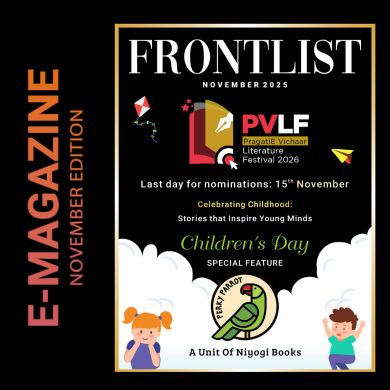Charlie and Lola author Lauren Child says children’s books should be taken seriously
Charlie and Lola author Lauren Child says children’s books should be taken seriouslyon Sep 22, 2021

Charlie and Lola creator Lauren Child is calling for attitudes towards children’s books to change, criticizing the “lazy” assumption that “creating work with children in mind is easier or less demanding”.
The former children’s laureate will launch a manifesto this evening in which she lays out her belief that in considering work created for children – from books to illustration, art, and music, and more – to be lesser, we are undervaluing what it means to be a child.
“There is a common, and lazy, assumption that creating work with children in mind is easier or less demanding and that a writer or artist would approach it with a lesser degree of seriousness or sincerity than when creating for an adult audience. I do not believe that to be true,” writes Child in the manifesto.
“One might as well suggest that shorter books hold less meaning than longer ones, or large paintings are better than small. Nevertheless, the view prevails, something which leads one to wonder: what unhappy reality does its existence reveal about the way many views our children, and our child selves?”
Her manifesto is launched the week after a six-year project from the Centre for Literacy in Primary Education found that using picture books in primary schools, and making drawing part of the learning process, improves children’s writing and reading skills. The Power of Pictures project saw over 7,000 children and 318 schools across the UK take part in a course designed to help teachers use picture books, understand the process that goes into developing picture books, and foster relationships between authors and schools. The project resulted in higher reading scores, and higher writing self-efficacy and writing creativity scores for children in the program.
“There’s not enough understanding of how sophisticated picture books can be,” said Child, who supported the project. “If we don’t understand that, then we don’t understand how amazingly sophisticated children are and that they think very deeply and powerfully about things. And we do them a disservice if we don’t see this.”
Speaking to the Guardian, Child pointed to Martin Amis’s comment that he would only write a children’s book if he “had a serious brain injury”, because “I would never write about someone that forced me to write at a lower register than what I can write.”
“I think he’s so wide of the mark. That’s such an odd thing to think – that you’re dumbing down when writing children’s books – you’re not at all. The sophistication of thought has to be there, the meaning has to be there,” Child said. “When you write for children or illustrate for children, it’s just reviewed in the most basic terms, as if you didn’t really think as deeply as you would if you’re writing for adults. I find that very strange. What you’re thinking about – in your narrative; in the beauty of the work and how you’re designing it, the way you put it together – there’s just as much thought put into it and meaning.”
Child, who is the author and illustrator of the Charlie and Lola picture books, and the Clarice Bean and Ruby Redfort series, will launch her new manifesto at an event at The Foundling Museum in London this evening. She writes in her manifesto that, as children, we recognize that our thoughts and ideas are as valid as anyone else’s, but that we are “taught to unlearn” this as adults.
“Our confidence in our ability to create is thus often undermined in our early lives when we tend to believe what we are told,” she writes. “The experiences of our early years are in the bones of us. We grow with our experiences, remembered or not. We don’t become adults and simply shed our child-self as soon as we reach a particular age. Those childhood experiences are part of who we are and they do not have less impact because we were little when they occurred, quite the contrary.”



.jpg)






.jpg)

.jpg)
.jpg)
.jpg)
.jpg)
.jpg)
.jpg)

.jpg)










Sorry! No comment found for this post.